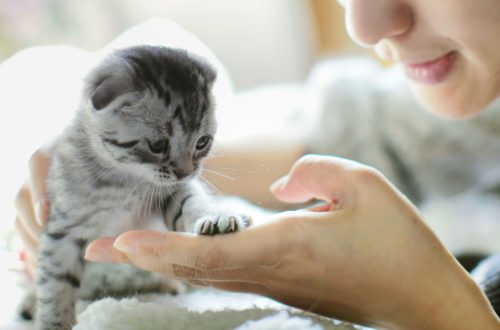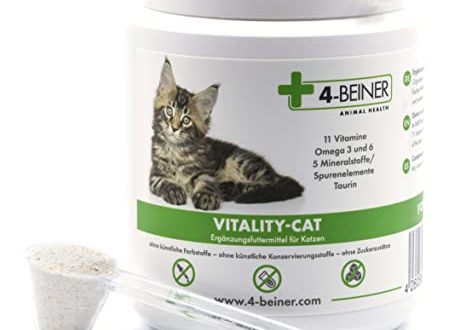
Arthritis in your cat: signs, causes and treatment
Contents
What is arthritis in cats?
Arthritis is a general term for abnormal changes in a joint. These changes occur when cartilage wears away faster than it can be replaced. The cartilage acts as a cushion to protect the bones. When it wears off, the joints swell and become painful.
Arthritis can develop in cats and cats of middle and older age. Also known as degenerative joint disease, it can be a source of chronic pain and negatively affect your pet’s quality of life. Arthritis in cats occurs when a joint loses strength, causing the bones in the joint to move improperly. Over time, it breaks down the cartilage that lines the joints, and bones rub against each other, creating chronic inflammation and pain.
Although arthritis is incurable, early treatment is essential – without it, your cat will continue to lose cartilage, resulting in the need for more aggressive treatment, such as surgery.

Does my cat have arthritis? Warning signs and symptoms
Arthritis can have a serious impact on the health and mobility of an animal. If your cat has arthritis, the first thing you will notice is that she has difficulty moving and is reluctant to walk, run, and jump. She probably has joint pain. Some of the signs of rheumatoid arthritis in cats are similar to those of other serious diseases. Consult your veterinarian for diagnosis if you notice any of these symptoms.
Signs of Arthritis in Cats
- Decreased activity.
- Problems with jumping to the surface / jumping off the surface.
- Urination past the tray.
- Walks slowly and may even limp.
- Social isolation.
Most cat owners look for the slightest change or oddity in their cat’s behavior, such as their ability to open doors or attack their feet at night, but find it difficult to tell when seemingly unusual behavior is a sign of a serious health problem. Below, we’ll look at some of the ways cats hide their pain, the common illnesses they suffer from, and how to give your pet the care she needs.
Causes of Arthritis in Cats
Risk factors:
- Age. As cats age, cartilage begins to degrade. Although arthritis is much more common in older animals, younger animals can also be affected by arthritis.
- Breed. Certain cat breeds are more prone to arthritis and reduced mobility. These are, for example, Himalayan, Persian and Siamese cats.
- Overweight. Being overweight means putting too much stress on your joints and cartilage, which can lead to arthritis and joint problems.
Other possible causes are:
- Congenital or hereditary pathologies. Some breeds of cats have congenital or hereditary conditions that make them prone to developing arthritis later in life.
- Damage or injury. Injury from an accident can damage cartilage, leading to arthritis later in life and impairing mobility.
- Infections. In rare cases, infections can lead to the destruction of cartilage and joint tissue.
What to Do if Your Cat Has Arthritis: Improving Joint Mobility and Health
- Take action now to keep your cat’s joints healthy. Do not wait.
- If your pet has arthritis, the cartilage in her joints wears away, causing severe pain.
- If you address the problem now, your cat may not need more aggressive treatments such as surgery in the future.1
1 Renberg V.S. Pathophysiology and treatment of arthritis. Veterinary Clinics of North America: Small Animal Veterinary Medicine. 2005; 35:1073-1091.
Treatment: the importance of nutrition
The health of a cat and her condition in general largely depend on the food she eats. A balanced diet is an integral part of her active, healthy lifestyle. For an accurate diagnosis and treatment options, always check with your veterinarian and ask them to recommend an arthritis-friendly food that will keep your cat’s joints healthy and mobile.
Arthritis and Joint Health Questions to Ask Your Veterinarian:
- What are my cat’s arthritis and joint health options?
- Ask how the meals fit in with other options available.
- Ask how a cat’s weight is related to joint health.
- Is nutrition part of a cat’s treatment regimen? Would you recommend Hill’s Prescription Diet for a cat with arthritis or joint problems?
- Ask about your cat’s dietary habits and how the recommended food can help.
- How much and how often should you feed your cat the recommended food.
- How many days will it take for my cat to show signs of improvement?
- Discuss how nutrition affects a cat’s weight and joint health.
- Discuss exercise programs that you can do without harming your cat’s joints.
- Ask for written guidelines for arthritis treatment and cat joint health?
- Ask about over-the-counter pain relievers and medicines that you can or cannot give your cat.
- Write down information about all medicines recommended. What is the best way to contact you or your clinic if I have questions (email/phone)?
- Ask if you will need to come in for a follow-up appointment.
- Ask if you will receive a notification or email reminder of this.





